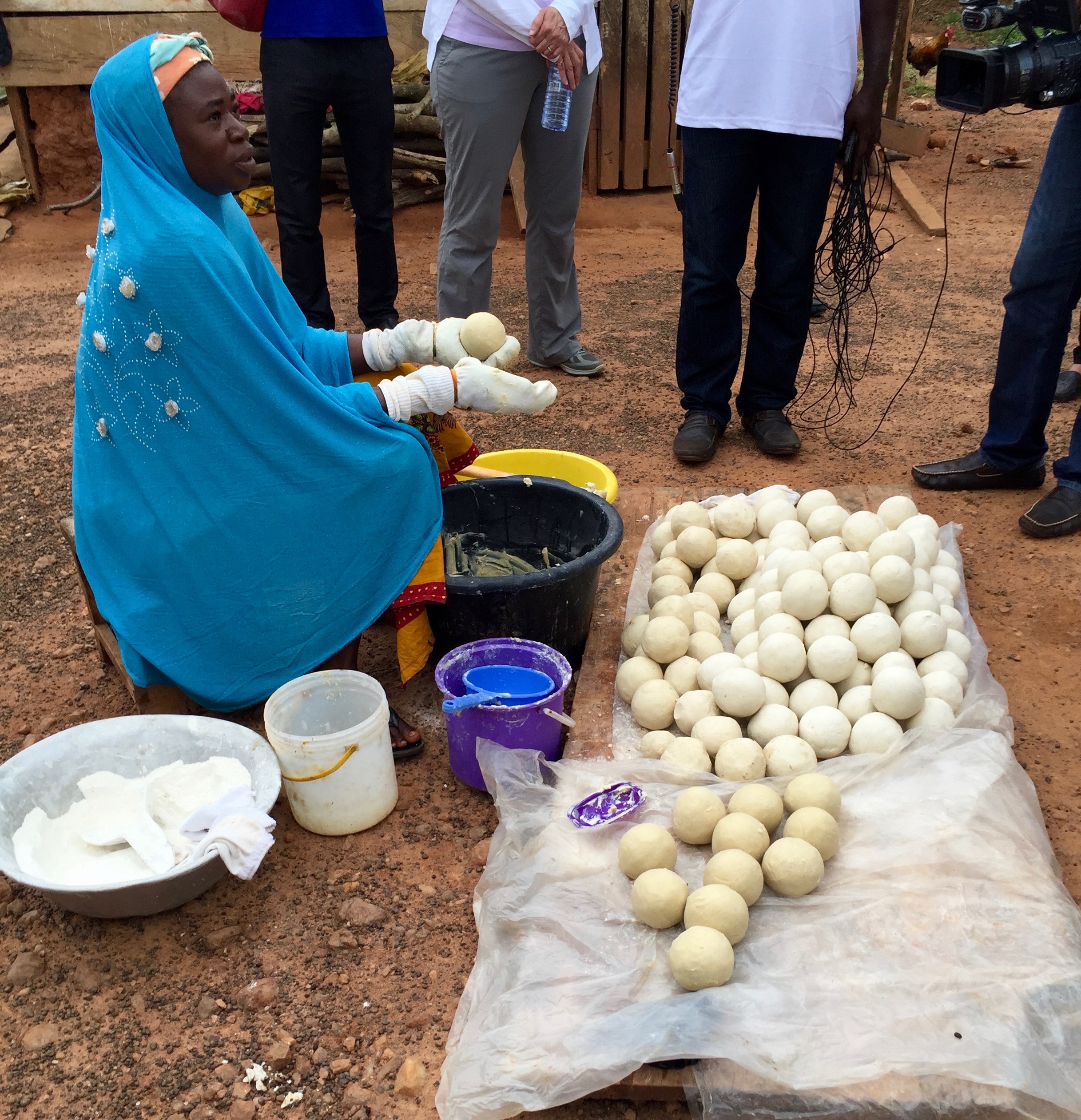Mamata making soap
My wife Suzanne and I recently spent a week with a group of Hunger Project investors attending celebration ceremonies for 3 epicenters that have achieved the exciting accomplishment of being declared "self-reliant," meaning communities that have demonstrated the confidence, capacity and skills to act as agents of their own development based on 53 distinct, rigorous measures. All told, nearly 42,000 people living in the 47 communities that make up the 3 epicenters have graduated to self-reliance in Ghana. Between 40-90% of the community members participate in one or more of the programs during the Epicenter Strategy journey which empowers community partners to go from a state of despair and resignation to self-reliance in on average, about 8 years.
During these celebrations, Mamata, a young village mother of 4 children who participates in The Hunger Project's Atuobikrom Epicenter in Ghana, Africa stated one of the most impactful leadership insights I've heard in a very long time.
When we arrived at her home, she was busy making soap outside in the yard. She never slowed her work down as we gathered around her and asked her questions about her life. She shared her very heartfelt thoughts with us as we probed for details about her family, the economics of her business, and how it all relates, (or doesn't), to the work of The Hunger Project.
Intervention
She shared a number of fascinating insights and her response to the last question was the capstone! "From your own experience as part of the epicenter, what would you like the women of the world to know?" Without hesitation, she replied, "be interested in intervention." Based on her earlier comments, she clearly was not talking about intervening in other people's lives. She meant intervention in your own life.
An example of what she was talking about was her “before and after” participation in The Hunger Project questions about her vision. She said she had no vision before being part of the program. Now she is building her soap-making business and has become involved in farming with her husband. She will put all her kids through school instead of having them work in the home and farm and she knows the importance of the kids getting an education. With support, she intervened in her own life and now her future has a completely different trajectory.
Her intervention quote was particularly relevant to me as I had just recently had a conversation with a rising star woman leader who shared her frustration with what seems to her an obsession with training in her organization and all the consultants pushing training, none of which seemed to her to be making much difference. We had contrasted the desire for information and intellectual understanding with development, which requires rigorous and sometimes painful examination of your own self-image and world view, and, more often than not, having to give up precious notions from your past. The payoff is that it will provide you with new openings and unexpected opportunities.
Mamata experienced The Hunger Project’s Vision, Commitment, and Action Program, along with several thousand of her neighbor's in the 11 villages that make up the epicenter. She has used that work to re-invent her life and create new possibilities for herself, her family, and the community.
If you became interested in intervention in your own life, what would be possible? What could it mean? What might be the unexpected outcomes? What if you could do it at the “collective level” of your organization as Mamata experienced within her Epicenter?

